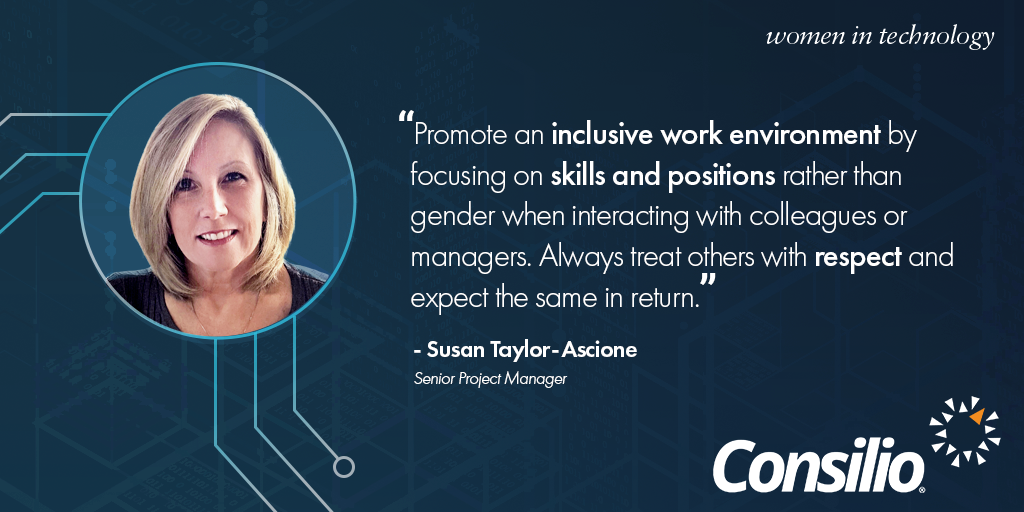 This blog is part of our ongoing Women in Technology series.
This blog is part of our ongoing Women in Technology series.
Susan Taylor-Ascione is a Senior Project Manager at Consilio with over 25 years experience managing projects and teams using legal support technologies. Susan began her career in law firms working on the largest litigation matters in the U.S. She moved to a Fortune 200 company to bring its eDiscovery services in-house where her team won the 2010 Chairman’s Award for reducing risk and costs to the company. Susan has also supported multiple government agencies managing technology teams to provide information technology and automated litigation support. Susan currently leads many large national and cross-border projects at Consilio and loves traveling and spending time with her family.
How did you get into this industry?
I began my career as a litigation paralegal. I later had the privilege of contributing to some of the most monumental litigation matters in the United States, characterized by substantial volumes of data. I found technology intriguing and I was able to use it to manage, cull, and organize data. Through the relationships I built, I transitioned into the eDiscovery industry.
What were some pivotal moments in your career that helped to get you to where you are today?
The pivotal moments in my career have been driven by my desire for self improvement in my life, my skills, and as a manager. My goal is to achieve the most optimal outcome for all stakeholders. I have had to set aside my fears and embrace confidence, enabling me to make pivotal career transitions. As a result, I have improved my skills, expanded my experiences, and made many long-lasting, cherished relationships along the way.
Have you ever noticed a time in your career where your gender proved to differentiate you?
When I attended my first eDiscovery meeting, The Masters Conference in Washington, DC, in 2008, the attendees were 80% men and 20% women. I was one of only a few in-house eDiscovery Managers who was female and felt like I stood out in every meeting.
What is your advice for someone working in a predominately male workplace?
Promote an inclusive work environment by focusing on skills and positions rather than gender when interacting with colleagues or managers. Always treat others with respect and expect the same in return.
What do you think companies could do to motivate more women to pursue careers in technology?
Companies need to understand and address any perceived or real biases that exist within their organization. They should institute policies and train their employees to deter and prevent biases in the workplace. In order to inspire women to further their career in technology, companies may introduce incentives to senior women leaders to serve as mentors for interns or new women employees. Another approach could be allowing senior women leaders to teach at universities or technical schools as an example to other women, fostering a stronger and more inclusive workforce.